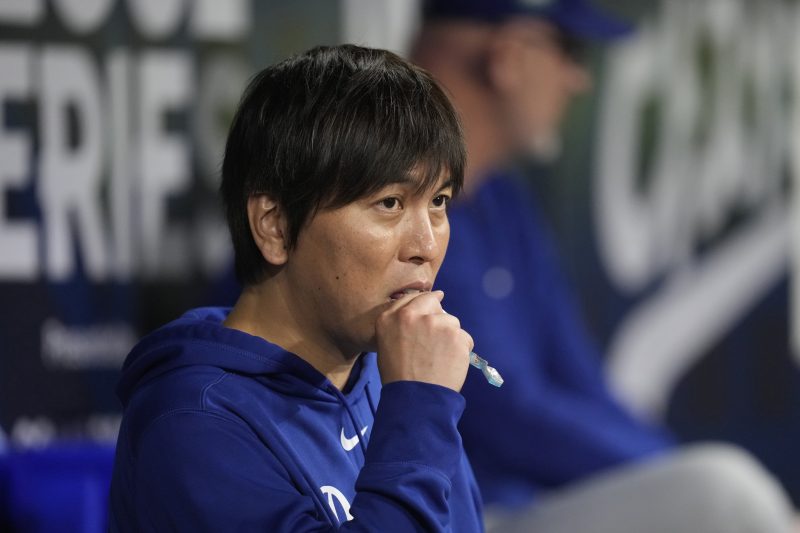LOS ANGELES (AP) – A former interpreter for Los Angeles Dodgers star Shohei Ohtani faces bank fraud and tax charges in a sports gambling case in which prosecutors say he stole nearly $17 million from the Japanese baseball player to pay off debts. Agreed to plead guilty to fraud charges. Federal prosecutors announced Wednesday.
The scandal surrounding Ippei Mizuhara shocked baseball fans from the United States to Japan when news broke in March.
The U.S. Department of Justice announced that Mizuhara will plead guilty to one count of bank fraud and one count of filing a false tax return. The bank fraud charge carries a maximum penalty of 30 years in federal prison, and the false tax return charge carries a maximum penalty of 3 years in federal prison.
According to the plea agreement, Mizuhara must pay nearly $17 million in total restitution to Ohtani and more than $1 million to the IRS. These amounts are subject to change prior to sentencing.
Prosecutors say Mizuhara will enter a guilty plea in the coming weeks and is scheduled to be arraigned on May 14.

“The extent of this defendant's deception and theft is egregious,” U.S. Attorney Martin Estrada said in a statement. “He used his position of trust to take advantage of Mr. Ohtani and fuel his dangerous gambling habits.”
Prosecutors say Mizuhara exploited his personal and public relationship with Ohtani to defraud millions of dollars from the two-way athlete's accounts over the years, sometimes impersonating Ohtani as a banker. Mizuhara's winning stakes totaled more than $142 million and were deposited into his own bank account, not Ohtani's. However, his losing bets were approximately $183 million, making his net loss nearly $41 million. He didn't bet on baseball.
According to the plea agreement, Mizuhara helped Otani open a bank account in 2018 and began stealing money from that account in 2021. At one point, Mizuhara requested the security protocols, email, and phone numbers associated with it so that when Buck was trying to verify a wire transfer, he would be called directly instead of Ohtani. According to the agreement, Mizuhara went to the bank about 24 times pretending to be Otani.
Mizuhara also admitted to falsifying his 2022 tax return by underreporting his income by more than $4 million.
Mr. Mizuhara's attorney, Michael G. Friedman, did not comment Wednesday on the deal.
According to authorities, there is no evidence that Otani was involved in or aware of Mizuhara's gambling, and that the player is cooperating with the investigation.
The Los Angeles Times and ESPN broke news of the charges in late March, the Dodgers fired the interpreter, and MLB launched its own investigation.
Dodgers manager Dave Roberts said Wednesday that he would not comment on the plea agreement, adding, “I just hope things get more contained.”
MLB rules prohibit players and team employees from betting on baseball, even if it is legal. MLB also prohibits betting on other sports by illegal or offshore bookmakers.
Mr. Mizuhara was freed on a $25,000 unsecured bond, colloquially known as a “signature bond,” meaning he did not have to post any cash or collateral to get free. If he violates the terms of his bond, including a requirement to receive treatment for gambling addiction, he will be required to pay $25,000 in restitution.
Ohtani tried to stay focused on the scene as the case made its way through the courts. Hours after the former interpreter appeared on court for the first time in April, he hit his 175th MLB home run in the Dodgers' 8-7 loss to the San Diego Padres in 2011, making him the first Japanese-born player to hit a home run. tied Hideki Matsui for the most totals. inning.


